Brief snapshot of IT business
Updated: 2011-12-12 07:57
(China Daily)
|
|||||||||

A look back at who said what and when and what the numbers can tell us
Editor's note: Who were movers and shakers of China's information technology (IT) industry in 2011? The answer varies according to which experts you ask. In this edition, China Daily presents a selection of digits and voices from companies and people who had a big impact on the IT industry in 2011. It is our hope that with this information our readers can better review the substantial development of China's IT over the past months.
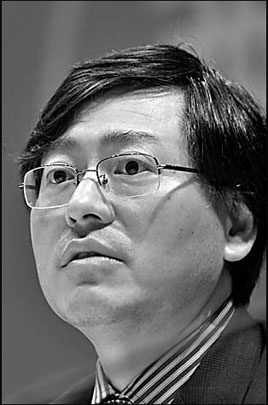
"Sooner or later, we'll be number one in the global PC market, if we keep growing at the same pace."
Yang Yuanqing, successor of Lenovo Group Ltd's Chairman Liu Chuanzhi, made the statement at Liu's resignation ceremony.
Lenovo, China's largest PC maker, announced the resignation of its founder and Chairman Liu on Nov 2, 2011. The company said that Liu, who returned as chairman in February 2009 to help turn the company around in the wake of the global downturn, would end his duties as chairman after he brought Lenovo to the second slot of global PC makers in the second quarter of this year, with record market share of 13.5 percent during the July to September period, according to International Data Corp.
During Liu's tenure, after buying International Business Machines Corp's PC business in 2005, Lenovo announced a $175 million joint venture with Japan's NEC Corp in January this year and the acquisition of Medion AG, a German multimedia and consumer electronics maker, in July.
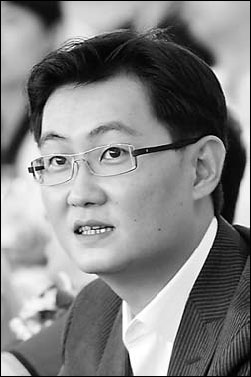
"Pure financial investment, we don't do that. The investment should have its strategic significance. We will invest but will not aim for a controlling stake."
Pony Ma, chairman and chief executive officer of the Internet conglomerate Tencent Holdings Ltd made the pledge when commenting on a series of investments the company has made this year, according to a report by newspaper 21st century business world.
The company in January launched a 5 billion yuan fund to invest in technology start-ups and companies that focus on games, mobile, media and e-commerce. It had made a total investment of about 2 billion yuan up to June. That same month, Ma said the company would allocate an additional 5 billion yuan to the fund.
Tencent has made more than 40 investments this year, including US-based Riot Games, the China-listed Huayi Brothers Media and Elong, a China-based online travel company. The company is stepping up acquisitions and adding partners to expand its range of services amid increasingly fierce competition from rivals such as Baidu Inc and Sina Corp.
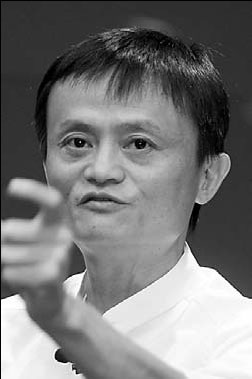
"I need some time to rest, especially this year. It was so difficult for me."
Jack Ma, chairman and chief executive officer of Alibaba Group Holding Ltd, the Chinese e-commerce giant, made the statement in a speech at Stanford University in September.
Alibaba Group underwent what it "didn't expect" this year, Ma said.
In May, Yahoo Inc, which owns 43 percent of Alibaba, said it had been blindsided when Alibaba transferred its online payment arm, Alipay.com Co Ltd, to a new company controlled by Ma. The move resulted in heated contradictory volleys between Yahoo and Alibaba, and the row didn't end until July when Alibaba, Yahoo, and Softbank Corp reached a settlement over the issue.
In October, Taobao Mall, the business-to-consumer unit of Alibaba, said it will increase service fees and the cash deposit it takes from vendors starting next year. This sparked "malicious buying" operations against larger Taobao Mall vendors. Alibaba then placated the small and medium-sized vendors with measures including a grace period for regular vendors to pay fees and a reduction in their deposits, but there are still complaints over the company's policy.
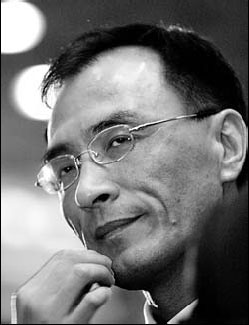
"I am going to spend more time with my family."
Chen Xiao, former chairman of Gome Electrical Appliances Holding Ltd, made the promise on March 9 after he gave over control of China's No 2 electronic distributor and ended the seven-month boardroom battle with the imprisoned founder Huang Guangyu.
Chen's resignation meant Huang and his family regain control of Gome despite Huang being sentenced to 14 years in prison in February after being convicted of illegal business dealings, insider trading and corporate bribery.
Zhang Dazhong, founder of Beijing Dazhong Electronics Ltd, which Gome acquired more than three years ago, was named chairman after Chen quit.
Gome's reshuffle enabled the company to refocus on marketing strategies and competition with Suning Appliance Co.
Gome is adding stores to narrow the gap with Suning in the electronic appliances' market which is likely to surge 70 percent to 2.14 trillion yuan by 2015 from 2010, according to Bloomberg News. The company recorded a net profit of 1.79 billion yuan ($280.4 million) for the first nine months of 2011, a 24.4-percent jump compared with the same period last year.
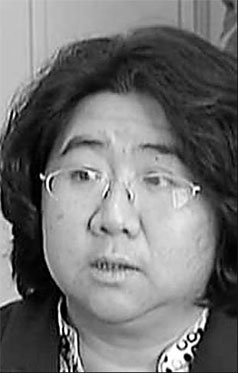
"China Telecom and China Unicom control two thirds of the country's broadband access market. They definitely have dominant positions. By taking advantage of their power, they charge higher fees to rivals but hand out preferential prices to other enterprises."
Li Qing, deputy head of the National Development and Reform Commission's price supervision and anti-monopoly department, made the accusation in November. On Nov 9, the NDRC, a macroeconomic management agency under the State Council, revealed it was investigating China Telecom Corp Ltd and China Unicom (Hong Kong Ltd) over suspected monopolistic practices in the broadband access business.
Li said China Telecom's broadband revenues amount to 50 billion yuan ($7.9 billion) annually while China Unicom nears 30 billion yuan. If they were found guilty, the two companies would face penalties of up to 10 percent of annual revenues, she added.
Li's remarks raised heated discussions among Chinese media and aroused public concern over business monopolies in China. However, in December, the NDRC announced it received applications from China Telecom and China Unicom to terminate the anti-monopoly probe into their broadband businesses.
The telecom carriers said in the applications that they will substantially raise their broadband speeds and lower broadband costs over the next five years. The NDRC said it is addressing the applications from the two companies in accordance with the law.
18.5 million units
The number of personal computer shipments to China in the second quarter of 2011, outnumbering the 17.7 million shipped to the United States, the US-based market researcher International Data Corp (IDC) said. China surpassed the US to become the world's biggest personal computer market for the first time during the second quarter. As the largest Internet-user country, China is expected to have PC shipments of 72.4 million units this year.
PC shipments to China may surpass the US next year, the research said. It forecast that next year's PC shipments would rise to 85.1 million units in China while outstripping an expected 76.6 million units to the US.
However, IDC still expected the US to have more PC shipments than China in 2011 because of the year-end holiday season sales.
1,017
The number of group-buying websites that closed down from March last year to last October in China, according to data from group-buying website navigator Tuan800.com. The country's group-buying websites began springing up in March 2010. Thousands of copycats then appeared, with the total number rocketing to around 6,000 at the peak.
However, the frenetic industry is not free of problems. A number of group-buying websites laid off people and shut down regional branches this year after an aggressive, or even irrational, expansion previously.
Complaints from consumers also mounted because some group-buying websites were accused of cheating money from consumers by providing fake goods.
Lashou.com, a major group-buying website, also saw its planned initial public offering delayed. It has stopped its roadshow for listing on the NASDAQ to clarify accounting issues with the US Securities and Exchange Commission, according to an In International Financing Review report earlier. The company hasn't provided further information about when the disrupted IPO may be carried out.
20,000 yuan
The price of an iPhone 4 in China's gray market. "We sold the first iPhone 4 in Beijing's Zhongguancun for 20,000 yuan ($3,125) on June 25 to a private individual," said Liu Hailing, one of the biggest Apple vendors in Zhongguancun. When the iPhone 4 was launched in late June, Chinese consumers felt snubbed at not being able to buy them at the same time as the rest of the world.
Scalpers and gray market vendors were happy to fill the gap. As a result, the price of the popular devices in gray markets was heavily marked up. According to Apple's second quarter earnings report, the company's sales revenue in China rose sixfold during the period compared with the same period a year ago, hitting $3.8 billion.
However, the latest handset iPhone 4S has yet to be formally introduced to the Chinese market, although it has been on sale elsewhere for several months.
$2.3 billion
The amount Chen Tianqiao will spend to take Shanda Interactive Entertainment Ltd private. Chen, chief executive officer of Shanda, said in November that he and his family plans to delist the company from the NASDAQ.
Chen has repeatedly complained that Wall Street investors don't understand the value of the games his company produces, said Forbes China. The price of Shanda stock has remained at about $40 since April 2009.
Shanda is likely to list its businesses, such as online literature, in the next five to 10 years, according to the Chinese financial website Caixin.cn.
But the online entertainment giant may encounter other setbacks as the growth of China's Internet video game industry slows.
In the third quarter, the advertisement investment of Chinese online game distributors shrank by about 7 percent quarter-on-quarter to 162 million yuan, said research firm Analysys International.
One of the most renowned online games, World of Warcraft, distributed by Blizzard Entertainment, saw player numbers slump over the past three months, the BBC reported. Blizzard's boss, Mike Morhaime, told the UK broadcaster that the biggest decline in player numbers was seen in the Asia-Pacific region, with significant falls in China.
100 million
The number of China's third generation (3G) wireless network users for the first time in the first nine months of 2011, statistics from the Ministry of Industry and Information Technology (MIIT) showed.
China has the world's largest "mobile" population of more than 950 million. The country started its 3G network development in 2009, when MIIT issued licenses for 3G business operations to three telecom carriers - China Mobile Ltd, China Unicom (Hong Kong) Ltd and China Telecom Corp Ltd.
The smartphone has played a critical role in China's 3G development. It creates large mobile data volume in the networks and requires high transmission speeds in order to process multiple functions. According to US-based research firm Strategy Analytics, China overtook the United States for the first time to become the world's largest smartphone market by volume in the third quarter of 2011.
Smartphone shipments reached a record 24 million units in China during the third quarter, while smartphone shipments reached just 23 million units in the United States in the same period, Strategy Analytics said.
A Google Inc report said in November that about 35 percent of urban Chinese use smartphones, the third-highest level in the world, following Singapore's 62 percent and Australia's 37 percent.
(China Daily 12/12/2011 page17)











